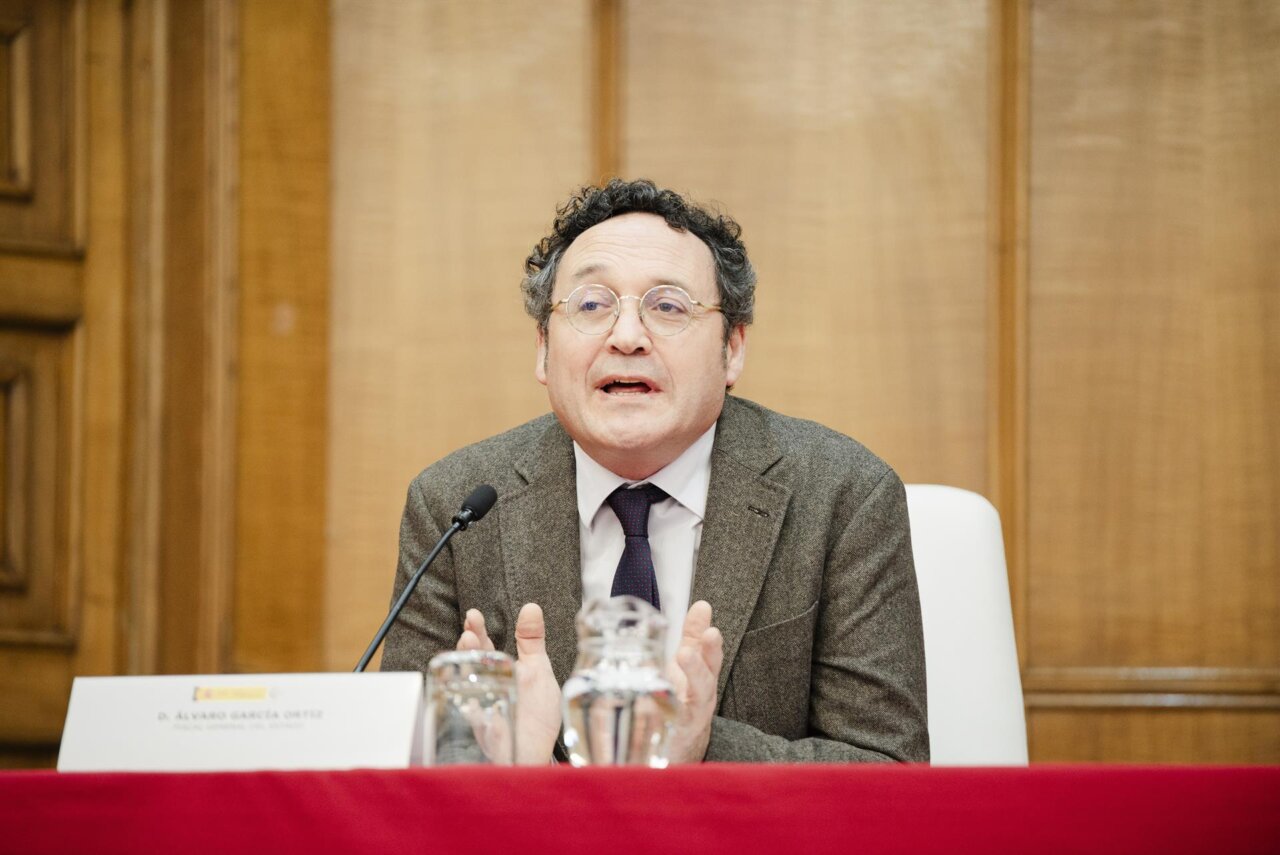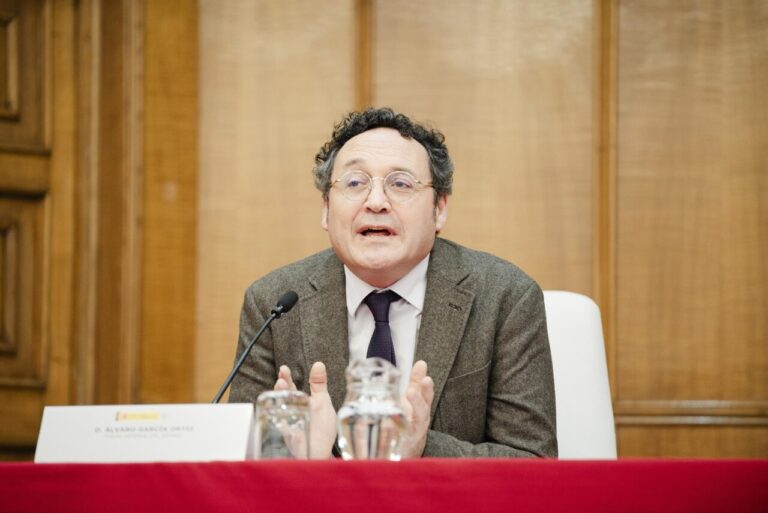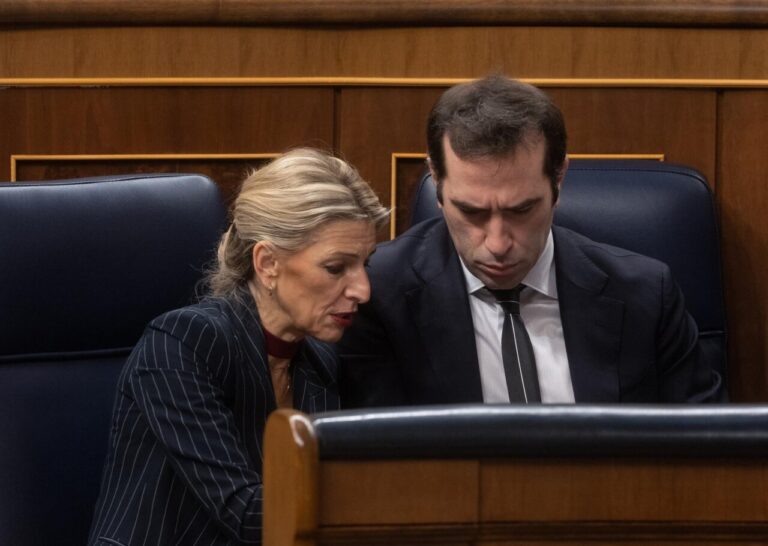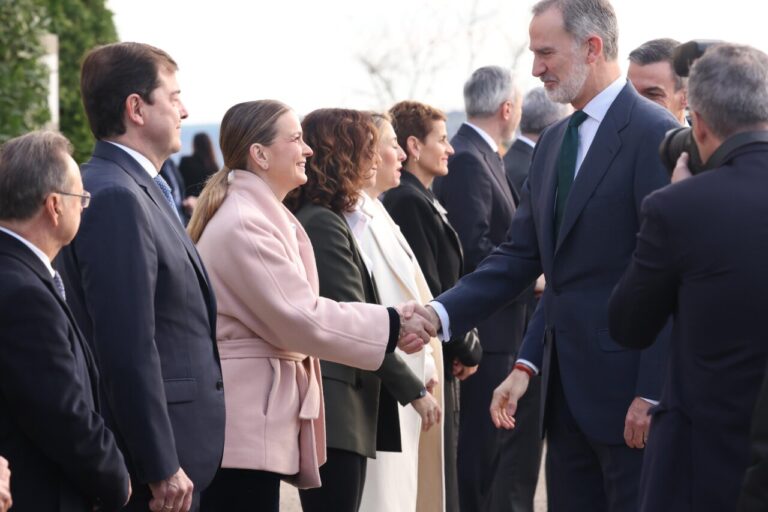The trade union Manos Limpias has filed a brief with the Supreme Court requesting an investigation of the state attorney general, Álvaro García Ortiz, for allegedly having asked for “advice” from the chief commissioner of the Central Brigade of Computer Security of the National Police. According to a publication of the newspaper El Confidencialpublished this Thursday, the attorney general would have made this consultation after ordering the recovery of messages from his cell phone, investigated in a case still under secret summary. The case, led by the magistrate Ángel Hurtado, seeks to clarify the content of the messages of García Ortiz, in the framework of a high-profile investigation whose context includes possible irregularities related to his position at the head of the Attorney General’s Office. The court evaluates whether improper practices were used to obstruct access to this data.
Attempt to influence research?
In its brief, Manos Limpias argues that García Ortiz could have “taken advantage of his position” to try to interfere in the recovery of crucial evidence. According to the union, if the National Police agreed to collaborate, a crime of destruction of evidence and other infractions could have been committed. The union has asked the magistrate to address an official letter to the Police to clarify whether any type of consultation or request was received from the Public Prosecutor’s Office, specifying the purpose of such advice and the actions taken in response. In addition, it requests that the aforementioned commissioner be summoned as a witness to clarify his possible involvement.
A case in the spotlight
This controversy is part of a broader investigation into the use of the attorney general’s official cell phone, which could contain information relevant to determining whether there was abuse of power or irregularities in the management of the Prosecutor General’s Office. Although the specific details of the case have not been made public, the order to retrieve the messages from the device underscores the importance of this data to the accusations. Manos Limpias, known for exercising the popular accusation in cases of public relevance, considers that this episode could expose an attempt to alter the course of the investigation, which would aggravate the responsibilities of the attorney general if the facts are confirmed.
Possible legal implications
If it is proven that Garcia Ortiz contacted the police with the intention of influencing the message recovery process, he could face serious legal consequences, including charges of obstruction of justice or abuse of power. At this time, neither the State Attorney General’s Office nor the commissioner involved have issued official statements on the matter.
Background
The Attorney General of Spain, Álvaro García Ortiz, is being investigated by the Supreme Court for an alleged crime of disclosure of secrets. The investigation is focused on the possible leak of an email sent by the lawyer of Alberto González Amador, partner of the president of the Community of Madrid, Isabel Díaz Ayuso, to the Prosecutor’s Office. This email contained information about a settlement proposal in which González Amador acknowledged having committed two tax crimes, with the aim of avoiding a trial for tax fraud and other crimes. Madrid’s top prosecutor, Almudena Lastra, testified before the Supreme Court that she asked García Ortiz if he had leaked the mail, to which he replied, “That doesn’t matter now.” Lastra pointed out that the leaked information could only have come from the Prosecutor’s Office. The judge of the Supreme Court, Ángel Hurtado, has summoned García Ortiz to testify as a defendant on January 29. In addition, the chief prosecutor of the Provincial Prosecutor’s Office of Madrid, Pilar Rodríguez, and the lieutenant prosecutor of the Technical Secretariat of the Attorney General’s Office, Diego Villafañe, are also being investigated in relation to this case. The investigation has revealed that the leaked email originated in the Prosecutor’s Office and was sent to the Presidency of the Government, from where they would have made arrangements for it to be published in the media. The president of the Community of Madrid, Isabel Díaz Ayuso, has described this case as a “Watergate” and has demanded the resignation of the Attorney General of the State and the President of the Government, Pedro Sánchez, arguing that the Attorney General’s Office has been used to attack a political adversary.










